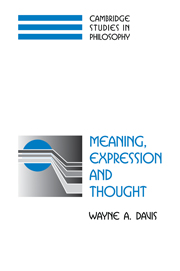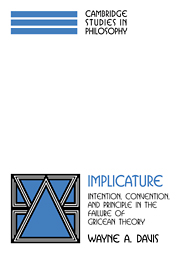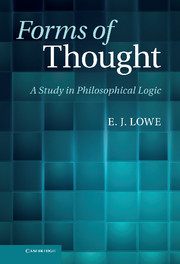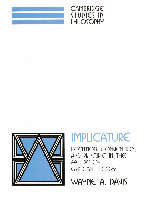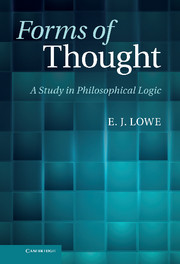Meaning, Expression and Thought
This philosophical treatise on the foundations of semantics represents a systematic effort to clarify, deepen, and defend the classical doctrine that words are conventional signs of mental states; principally, thoughts and ideas; and that meaning consists in their expression. This expression theory of meaning is developed by carrying out the Gricean program, explaining the significance of words to have meaning in terms of speaker meaning, and for a speaker to mean something in terms of intention. Grice's own formulations are rejected, and alternatives are developed.
- Offers a critical assessment of the Gricean program
- Develops the theory of thought as a fundamental cognitive phenomenon distinct from belief and desire
- Provides a philosophical theory of language and its use based on the notion that meaning is to be analysed in terms of mental states
Reviews & endorsements
"In this important book, Davis argues strongly that the traditional view is substantially correct and that it can be developed in ways that avoid standard objections. This work displays impressive erudition and rigorous analysis of central questions in the philosophy of mind and language.... Highly recommended." Choice
Product details
August 2007Paperback
9780521039048
676 pages
228 × 152 × 37 mm
0.99kg
Available
Table of Contents
- Preface
- 1. Introduction
- Part I. Semantic Acts and Intentions:
- 2. Speaker meaning
- 3. Expression
- 4. Alternative analyses
- 5. Communication
- 6. Reference
- Part II. Languages and Semantic Acts:
- 7. Languages
- 8. Basic word meaning
- 9. Conventions
- 10. Compositional word meaning
- 11. Living languages
- Part III. Thoughts and Ideas:
- 12. Thought
- 13. Sentences, propositions and thoughts
- 14. The constituency thesis
- 15. Ideas or concepts
- 16. The possession of concepts
- 17. The acquisition of concepts
- 18. The association of ideas
- 19. Objects, images and conceptions
- 20. The language of thought hypothesis
- Part IV. Ideational Theories of Meaning:
- 21. Objections to ideational theories
- 22. Priority objections
- 23. Incompleteness objections
- References
- Index.

